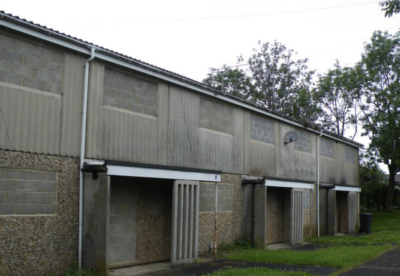The 55-year-old from West Derby, near Liverpool, who has asked not to be named, was employed by Stonyhurst College for almost 12 years where he was exposed to high levels of silica dust.
He was diagnosed with silicosis in July 2011 – four months before being made redundant by the college.
Stonyhurst was prosecuted by the HSE after an investigation found that he and other stonemasons may have been exposed to more than 80 times the daily limit for silica dust.
Preston Crown Court was told the college employed the stonemason as a member of staff in June 1999 as the 200-year-old college buildings needed extensive repairs for wind and weather-proofing.
A second stonemason was employed in April 2005 and a third in January 2009 to help with a major project to build a new four-storey, sixth-form building.
The 21-month project required more than 400 tonnes of sandstone and the stonemasons spent their time working intensively with powered hand tools cutting, shaping, chiselling and finishing the sandstone.
The HSE investigation found Stonyhurst failed to take any measures to monitor or reduce the exposure of workers to silica dust.
The court heard that the college failed to recognise the risks and no equipment was used to remove, capture or supress the dust that was created by the use of the stonemasons’ tools.
Even after the college was notified that one of the stonemasons had developed silicosis in July 2011, it failed to take any action to monitor exposure levels until its two remaining stonemasons were made redundant in November 2011.
The stonemason with silicosis has suffered serious and irreversible health effects as a result of his exposure.
He has a reduced lung function, suffers from breathlessness and can no longer continue with his profession.
Stonyhurst was fined £100,000 and ordered to pay £31,547.78 in prosecution costs after pleading guilty to a safety breach.
Speaking after the hearing, HSE Inspector Mike Mullen said: “Stonyhurst directly employed stonemasons over a 12-year period but it failed to take any action to ensure its employees weren’t exposed to high levels of silica dust.
“During the construction of the sixth-form building, the work of the stonemasons intensified. We estimate that they were regularly exposed to silica dust at a level which was in excess of 80 times greater than the workplace exposure limit.
“There was no attempt by the college to assess and manage its workers’ exposure despite having their attention drawn to the risks by its own health and safety consultant in 2008.
“A worker who was previously very active now struggles to play outside with his grandchildren, and will suffer breathing difficulties for the rest of his life.
“Silicosis is irreversible and can be a fatal disease. It leads to an increased chance of suffering from lung cancer, tuberculosis, kidney disease and arthritis, and it’s therefore vital the risk from silica dust is taken seriously.”


























.gif)



 MPU 300_250px.gif)






















